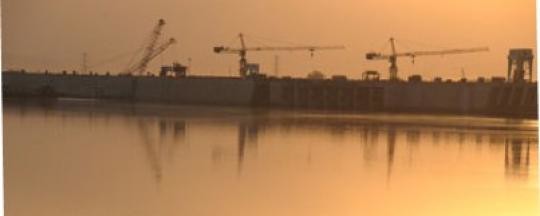The Deputy Minister of Water Resources and Irrigation, Ali Kata Ogi, has confirmed in an interview with Radio Tamazuj that arrangements are underway to hold the Nile Water Summit 20 June in Juba. He also acknowledged the participation of both Sudan and Egypt after the two countries failed to reach agreement earlier this year.
Egypt and Sudan refused the terms of the Entebbe Agreement and associated quotas contained in the Nile Water Convention of 1929-1959. The demand for adherence to the Convention for the signing of the Entebbe Agreement was also rejected.
Ogi asserted that South Sudan does not recognize the 1929-1959 Nile Water Convention and called for re-division of Nile water as stipulated in the Entebbe Agreement.
“South Sudan will not consider the 1929-1959 Nile water sharing agreement but will sign the Entebbe Agreement. We have no intention to dig a channel that will enhance water flow to Egypt as accumulation of water at Jonglei canal is helpful in regulating the South Sudan climate,” Ogi said, explaining the position of South Sudan.
The Ethiopian Renaissance Dam issue is expected to feature prominently the summit, as Ethiopia begun with the practical phase of diversion of the Blue Nile in order to build the Renaissance Dam. The dam will represent the largest hydroelectric power plant in Africa, and will cost $4.7 billion.
The dam will cover a distance of 40 kilometres from the Sudanese border. According to the Ethiopian electric power corporation, the electricity production capacity of the dam will reach up to 6000MW which will make Ethiopia the largest source of hydroelectric power in Africa.
However, the Egyptian government has rejected the entire scheme. In a statement earlier this month, Egyptian Foreign Minister Mohamed Kamel said that Egypt will not compromise of Nile waters, saying that any project that impedes the flow of river water is a threat to their survival in Egypt.
Former Sudanese ambassador to Ethiopia, Osman El Sayed said earlier that the establishment of dam will benefit Sudan.
He explained that the increased regularity of the Nile water will increase agricultural areas and dismissed Sudanese objections. He also disputed talk that Ethiopia is gaining more their fair share of water, describing the allegations as “impossible processes”.
Related: Blue Nile to be diverted ‘a few metres’ for Ethiopian Renaissance Dam (30 May 2013)




